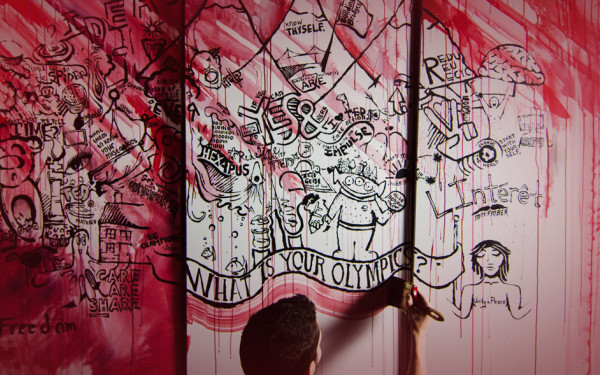Terrorism: A Loaded Label
A Discussion With Media and Communication Professor Ahmed Al-Rawi
Within hours of the Quebec City mosque shooting on Jan. 28, Prime Minister Justin Trudeau “ released a statement officially condemning the shooting at the Centre culturel islamique de Québec.
In the statement, he called the event a “terrorist attack on Muslims.” His declaration was soon shared 9,800 times on Twitter, popularizing the term “terrorist” in naming the events.
Six people are dead and 19 others were injured during the attack. Allegedly committed by 27-year-old student Alexandre Bissonnette, he is now facing six counts of first-degree murder and five counts of attempted murder. On Twitter, users were quick to pinpoint that he was not charged with terrorism.
Why Quebec City mosque shooting suspect may not face terrorism charges https://t.co/urbIoGN2aj pic.twitter.com/1Mg4Ipekks
— CBC Montreal (@CBCMontreal) February 2, 2017
“Basically, the incident itself can be termed a terrorist attack, or act,” explained Media and Communication Studies professor Ahmed Al-Rawi, citing the fact that the events contained political and ideological motivation aimed at creating fear, which are elements of terrorism.
“You can also argue, however, that it could be labeled a hate crime. It mostly depends on the official framing of the event,” explained Al-Rawi, who teaches a class on Media and Terrorism at Concordia. Many media outlets followed the officials’ trends this time, continuing with the label of terrorism.
“It is something completely new this time. Usually, time elapses before events are labeled as [a] terrorist [attack],” he continued. According to Al-Rawi, during the previous Harper government, “terrorist” was a label “mostly if not exclusively” used for crimes committed by Muslims.
“Terrorism” is and has been a word that media and politicians use carefully. Before Dec. 18, 2001, the Canadian Criminal Code did not include this term. The RCMP now has a clear-cut definition of terrorist acts:
“Activities within or relating to Canada directed toward or in support of the threat or use of acts of serious violence against persons or property for the purpose of achieving a political, or religious or ideological objective within Canada or a foreign state.”
It is however unclear exactly how many incidents were labeled as terrorism in Canada. The Canadian Network for Research on Terrorism, Security and Society from the University of British Columbia established that 1,185 incidents were terrorism-related since 1968, among which 410 took place abroad. Public Safety Canada labels 12 “disasters” as acts of terrorism, since the beginning of the 20th century in its Canadian Disaster Database.
“If you look at the way the Canadian media covered the events from abroad, there is some kind of focus on Islamic terrorism,” Al-Rawi said. “Other types of terrorism such as eco-terrorism, left-wing terrorism and others are rarely covered in Canada. There is a bias in covering those groups.”
Among the incidents listed above, most of them were perpetuated by mainly white groups advocating for Quebec’s independence, such as the Front de Libération du Québec.
Yet, “confusion happened” after the shooting, as Al-Rawi highlighted: A Canadian man of Moroccan origin was arrested and labeled as a suspect. He was later released and became a witness.
“Many media outlets, including Fox News and The Daily Mail, reported that he was responsible of the attacks,” Al-Rawi said. “CBC did not do enough either. It could have done a better job confirming the identity, doing the follow-up and cross-checking with the police.”
If this confusion highlights the bias of media coverage when it comes to the use of “terrorism” semantics, Al-Rawi argues the Quebec shootings could at least encourage people, as well as officials, to look beyond Muslim groups and start labeling other militant extremist groups as terrorists.
The professor has started to research the Quebec shooting reception on social media and is not optimistic about such perspectives. He started skimming through the 13,000 tweets he has collected so far, all containing the hashtags #QuebecMosqueShooting and #Quebecattack. Most contain hostility toward Muslims and suspicions on the identity of the shooter.
“This is a reminder of what we call fake news,” said Al-Rawi. “We need to do something about it—the public, researchers, scholars.”

_900_600_90.jpg)


_600_375_90_s_c1.jpg)
_600_375_90_s_c1.jpg)
1_600_375_90_s_c1.jpg)
